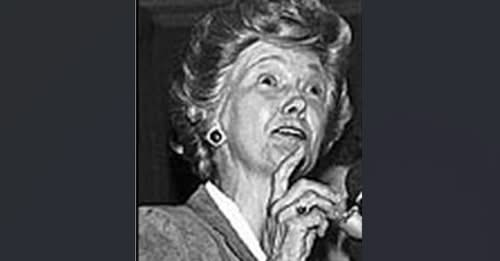Jane Bassett Spilman, former chair of Gallaudet University’s Board of Trustees, has reportedly passed away, as announced on May 17, 2025. While details surrounding her death remain unconfirmed, her legacy is indelibly linked to the transformative events of the 1988 “Deaf President Now” (DPN) movement, a pivotal moment in the history of Deaf civil rights.
A Controversial Tenure at Gallaudet University
As chair of Gallaudet’s Board of Trustees in 1988, Spilman oversaw the appointment of Elisabeth Zinser, a hearing individual, as university president. This decision ignited widespread protests among students, faculty, and alumni, who felt that the selection overlooked qualified Deaf candidates and failed to represent the Deaf community’s interests. The situation intensified when Spilman was reported to have stated, “Deaf people are not ready to function in a hearing world.” Although Spilman denied making this statement, attributing it to a possible misinterpretation by her interpreter, the remark became a rallying cry for protesters demanding Deaf leadership and representation.
The Deaf President Now Movement
The DPN protests marked a significant turning point in the fight for Deaf rights. Students and supporters shut down the Gallaudet campus, presenting four demands: the resignation of Zinser, the appointment of a Deaf president, Spilman’s resignation, and increased Deaf representation on the board. The movement garnered national attention, leading to Zinser’s resignation and the historic appointment of I. King Jordan as Gallaudet’s first Deaf president. Spilman resigned from her position on March 13, 1988, stating that her continued presence was “an obstacle to healing.
Legacy and Reflection
Jane Bassett Spilman’s tenure at Gallaudet University remains a complex chapter in the institution’s history. While her leadership faced significant criticism during the DPN movement, the events of 1988 catalyzed a broader conversation about Deaf empowerment and representation. The DPN movement is now recognized as a landmark in the struggle for Deaf civil rights, emphasizing the importance of self-advocacy and inclusive leadership.
Spilman’s passing invites reflection on the progress made since the DPN protests and the ongoing efforts to ensure that Deaf individuals have a voice in decisions that affect their communities. Her role in this pivotal moment underscores the impact of leadership choices and the enduring importance of representation and inclusivity in educational institutions.
As the Deaf community and allies remember the events of 1988, Spilman’s legacy serves as a reminder of the challenges faced and the strides made toward equality and recognition for Deaf individuals.

Leave a Reply